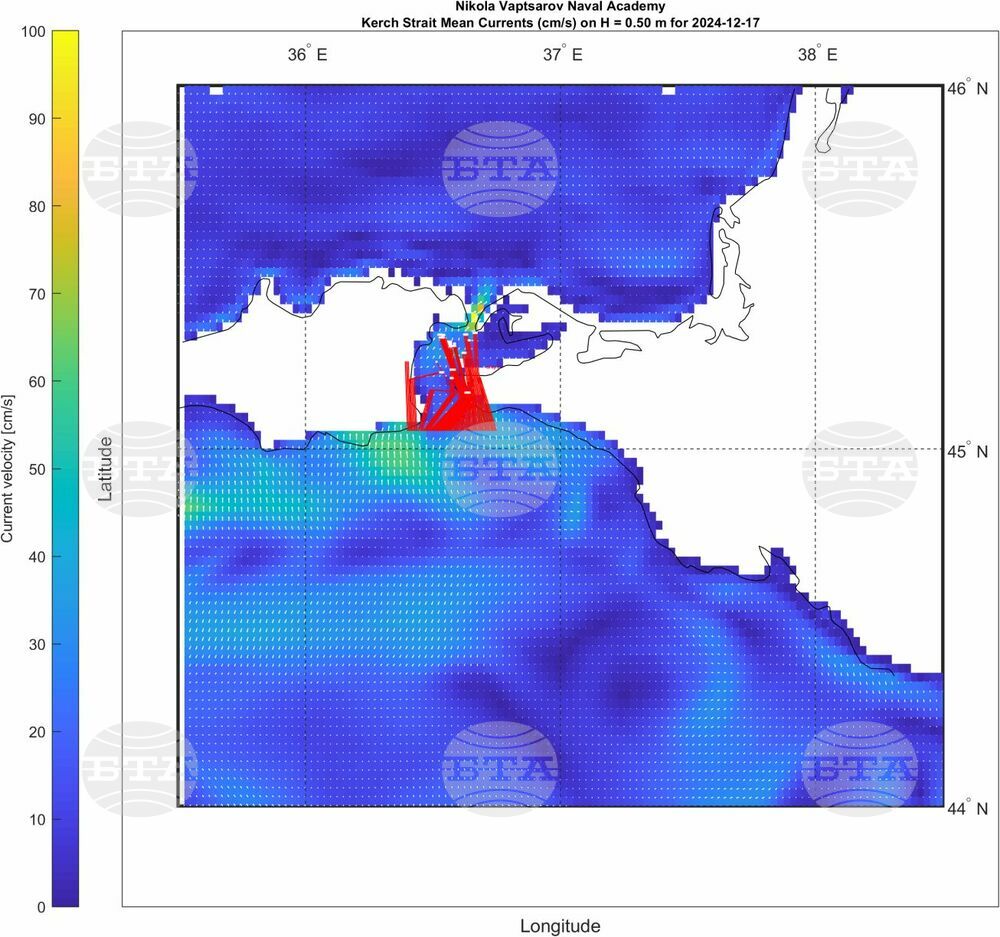site.bta"No Changes Observed" Close to Bulgarian Coast since Sunday's Kerch Strait Oil Spill


No changes have been observed in the Black Sea close to the Bulgarian coast since Sunday, when two Russian oil tankers were caught in a storm in the Kerch Strait and an oil spill ensued, the Bulgarian Ministry of Environment and Water reported on Tuesday. The environmental damage from the spill is expected to be significant in the area of the incident, but the Bulgarian coast is unlikely to be affected, the ministry said in a press release.
After an analysis, the offshore zone management centre of the Nikola Vaptsarov Naval Academy in Varna put out a forecast for the period until December 25, predicting that currents close to the sea surface will carry the oil slick to the north, practically keeping it within the aquatory of the Kerch Strait, with a possible partial spillover into the Sea of Azov.
Sofia's National Institute of Meteorology and Hydrology (NIMH) drew a similar conclusion. A computer simulation showed the oil slick reaching the shores of the Kerch Strait soon after the incident and a part of it drifting further north into the Sea of Azov, the NIMH's Vasko Galabov said. He noted that the period covered by the simulation went beyond the time for which there were forecasts about wind and other weather conditions, and therefore the scientists used average wind and sea-current values for December to January. That is why the simulation is not exactly a forecast but rather a worst-case scenario.
Under this scenario, no pollutant was carried west of the Crimean Peninsula within 24 hours after the incident. For considerably longer periods, it should be taken into account that the oil (mazut) is undergoing physicochemical changes as a result of its contact with water, a process called degradation, which, with time, causes the oil to sink, according to the press release of the Environment and Water Ministry.
Experts look to the satellites Sentinel-1, Sentinel-2 and Sentinel-3 for a chance to monitor the actual movement of the oil slick.
/DS/
news.modal.header
news.modal.text